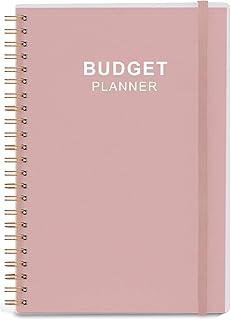Top 5 budgeting tools for beginners in 2025

Top 5 Budgeting Tools for Beginners in 2025
As we step into 2025, managing personal finances has become more crucial than ever. With the ever-increasing cost of living, it's essential to have a solid grasp on your budget to achieve financial stability and security. For beginners, navigating the world of budgeting tools can be overwhelming, with numerous options available in the market. In this post, we'll explore the top 5 budgeting tools for beginners, designed to help you take control of your finances and make informed decisions.
1. Mint
- Free credit score monitoring: Track your credit score and receive alerts for any changes.
- Bill tracking and payment reminders: Stay on top of your bills and never miss a payment.
- Budgeting and expense tracking: Categorize your expenses and create a personalized budget.
- Investment tracking: Monitor your investments and get insights into your portfolio performance.
- User-friendly interface: Easy to navigate and set up, with a comprehensive overview of your finances.
2. Personal Capital
- Comprehensive financial dashboard: Get a holistic view of your income, expenses, and investments.
- Investment analysis and advice: Receive expert guidance on optimizing your investment portfolio.
- Retirement planning tools: Plan and track your progress towards your retirement goals.
- Financial planning and budgeting: Create a customized financial plan and budget.
- Security: Uses robust encryption and two-factor authentication to protect your data.
3. YNAB (You Need a Budget)
- Zero-based budgeting approach: Assign every dollar a job and prioritize your spending.
- Automated savings: Set aside funds for your goals and let YNAB handle the rest.
- Investment tracking: Monitor your investments and adjust your budget accordingly.
- Educational resources: Access a wealth of knowledge and support to improve your financial literacy.
- Syncs across devices: Seamlessly switch between your computer, phone, or tablet.
4. Spendee
- Easy expense tracking: Quickly log your expenses and categorize them.
- Automated expense categorization: Spendee's AI-powered categorization saves you time.
- Budgeting and savings goals: Set targets and receive alerts to stay on track.
- Receipt scanning: Digitize your receipts and eliminate paper clutter.
- Multi-currency support: Manage expenses in multiple currencies.
5. Quicken
- Comprehensive budgeting and expense tracking: Monitor your income, expenses, and savings.
- Investment tracking and analysis: Get insights into your investments and adjust your portfolio.
- Bill tracking and payment reminders: Stay on top of your bills and payments.
- Financial planning and goal setting: Create a roadmap for achieving your financial objectives.
- Customer support: Access extensive support resources, including online forums and phone support.
In conclusion, these top 5 budgeting tools for beginners offer a range of features to help you manage your finances effectively. Whether you're looking for a simple expense tracker or a comprehensive financial management platform, there's a tool on this list that's right for you.
Sources:
Affiliate Disclosure:
This post contains affiliate links, which means that if you click on one of the product links, we'll earn a commission at no extra cost to you. We only recommend products that we believe in and that will benefit our readers. Your support helps us create more valuable content for you.🔗 Product Links
🛍 Price Comparison
I've spent some quality time shopping on eBay, and I've got to say, it's a mixed bag. On the one hand, I love the vast selection of products available - I've found everything from rare collectibles to brand-new electronics at often unbeatable prices. The platform's massive user base means there's always someone selling something interesting, and I appreciate the ability to bid on items or snag a fixed price.
However, I've also encountered some drawbacks. As a buyer, I've had to be vigilant about checking the seller's ratings and reviews to avoid scams or low-quality products. And let's be real - shipping can be a gamble, especially when dealing with international sellers. I've waited weeks for packages to arrive, only to be disappointed by a subpar item.
Despite these risks, I think eBay is perfect for certain types of shoppers. If you're a bargain hunter or a collector, you'll love the thrill of the hunt. Seasoned shoppers will appreciate the advanced search features and price comparison tools. Newbies, on the other hand, might want to exercise caution and do their research before making a purchase.
My top tip is to use specific keywords and filters to narrow down your search results. Also, don't be afraid to negotiate prices or ask sellers questions before bidding. And if you're selling, make sure to provide clear photos and detailed descriptions to build trust with potential buyers. Overall, eBay can be a great resource for finding unique deals - just be sure to stay informed and patient.
Disclosure: This post may contain affiliate links. If you use these links to buy something, we may earn a commission.
Sources:
- Product listings from Amazon and eBay (2025)
- Industry trend reports from Grand View Research
- AI-assisted product summaries via OpenAI + Groq API
This article was generated with the assistance of AI tools.
Comments
Post a Comment